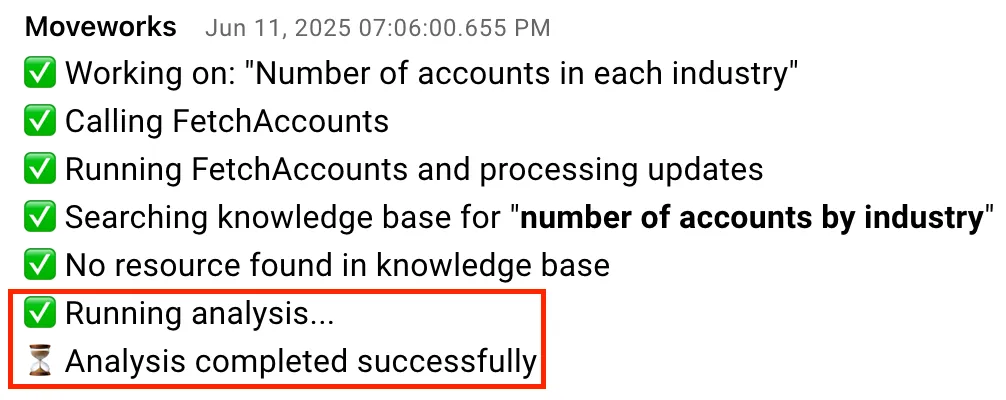Quickstart #4: Structured Data Analysis (SDA)
Background & Objectives
This guide will walk you through how to build Agent Studio plugins that return large volumes of data to the AI Assistant.
In this quickstart guide, you will
- Build a plugin that fetches 500 accounts from a mock CRM
- Set up the plugin to work alongside our Code Interpreter plugin
At the end, your AI Assistant will be able to handle requests like this
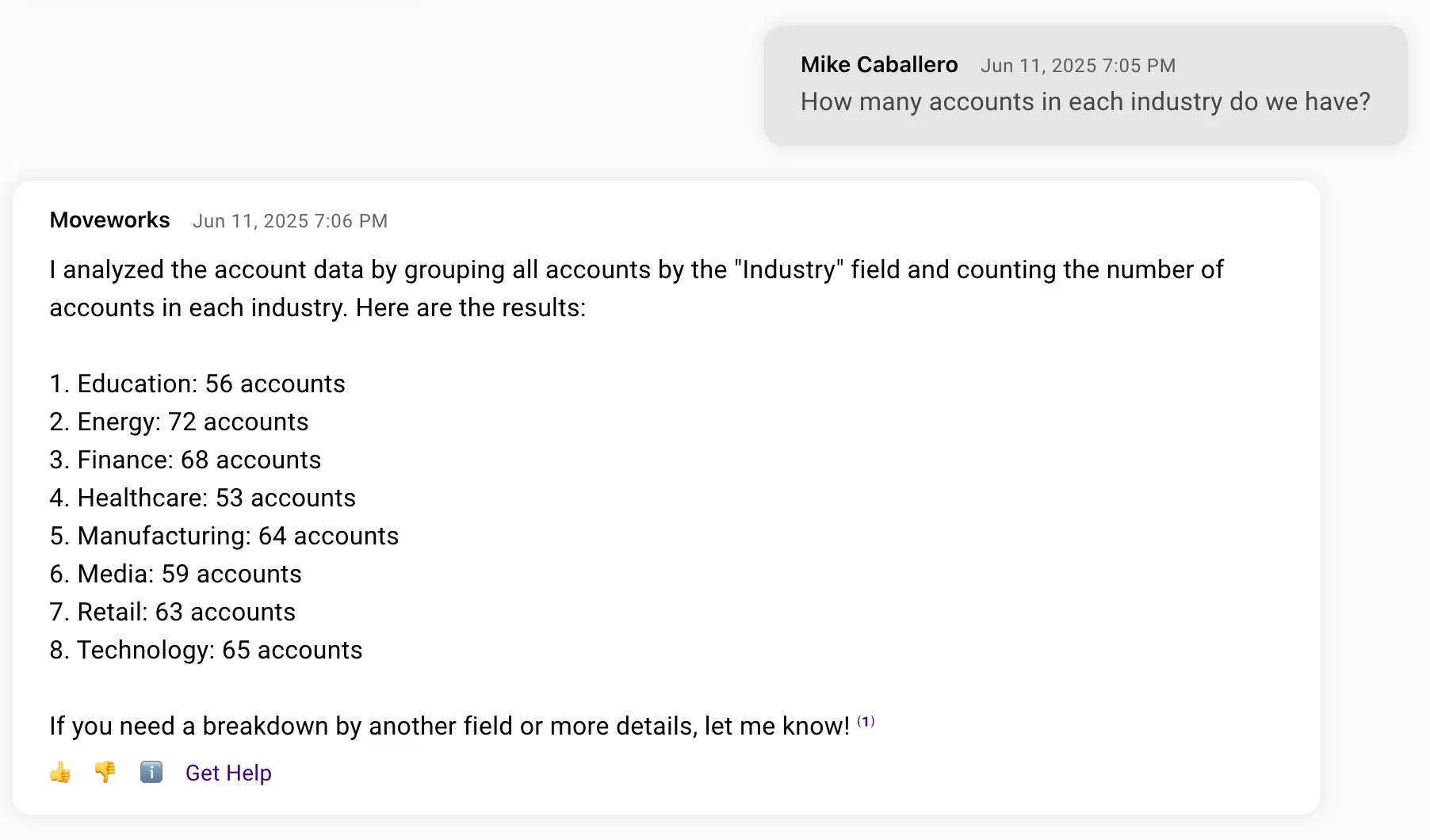
Prerequisites
- Access to Agent Studio
- Access to Structured Data Analysis.
- No system APIs needed!
Define your plugin
-
Go to Agent Studio. In the Plugins tab, select Create
-
Define your plugin.
SDA Tip!It's important to be descriptive about the data that an SDA plugin returns.
Attribute Value Plugin Title Fetch Accounts Plugin Description Returns all Accounts with ID, name, industry, territory, created/modified, last contact & renewal, ARR & MRR, employee count, opportunities (total/open/won/lost), avg deal size, churn rate, NPS, tickets, offices, market share %, growth rate & funding.
Create a trigger
-
In the Plugin Editor, add a Conversational Trigger and fill it out
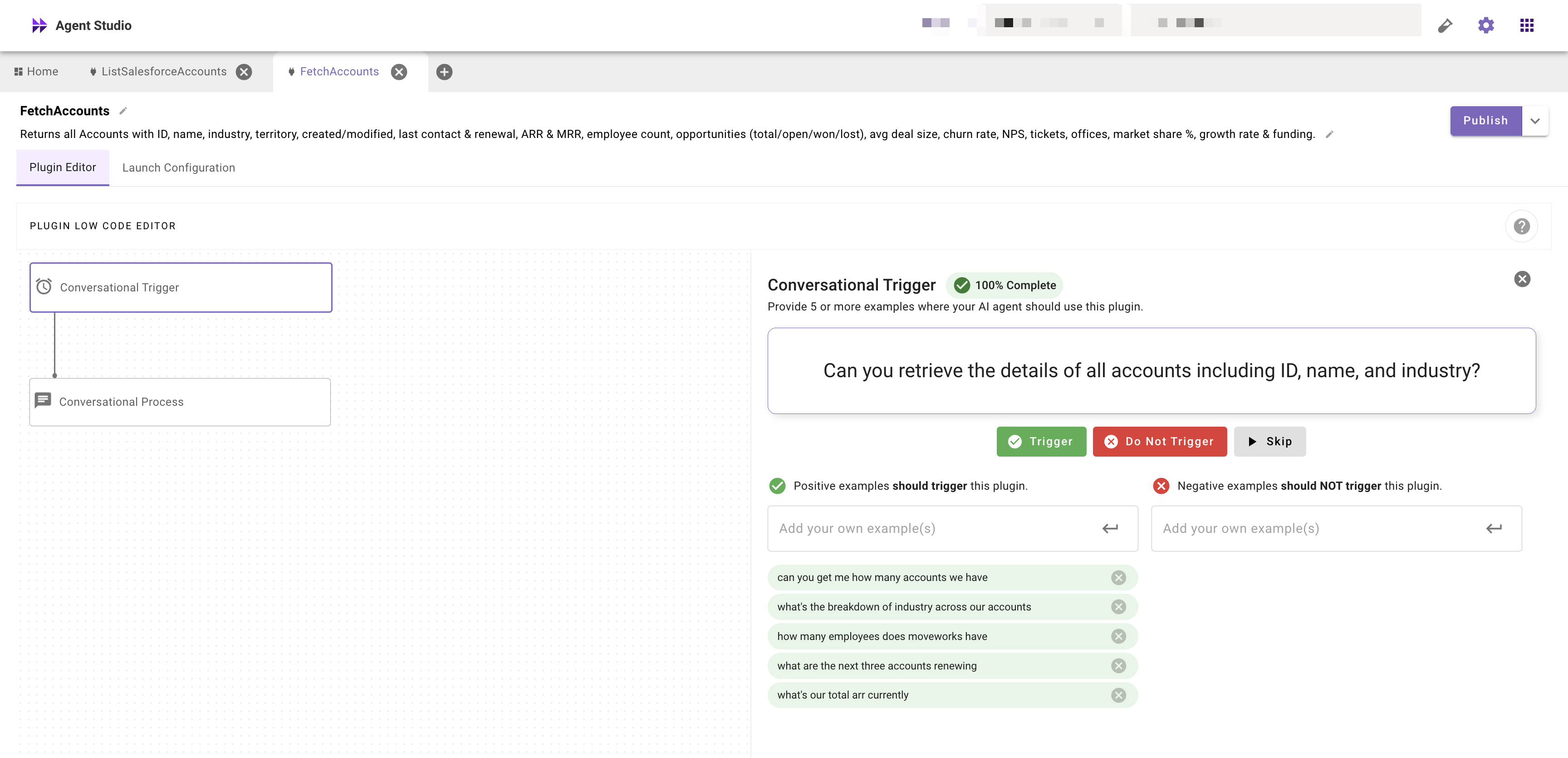
Build your process
Connect to the mock CRM
We need an HTTP action that will fetch the large volume of data from the external system.
-
Click ⊕ in the tab bar and create a new HTTP Action
-
Select the Import option (next to the Test button)
-
Import the following API call
curl --location 'https://marketplace.moveworks.com/api/purple-suite/crm/accounts?count=500' -
Hit Test
-
Name your HTTP Action. It should look something like this.
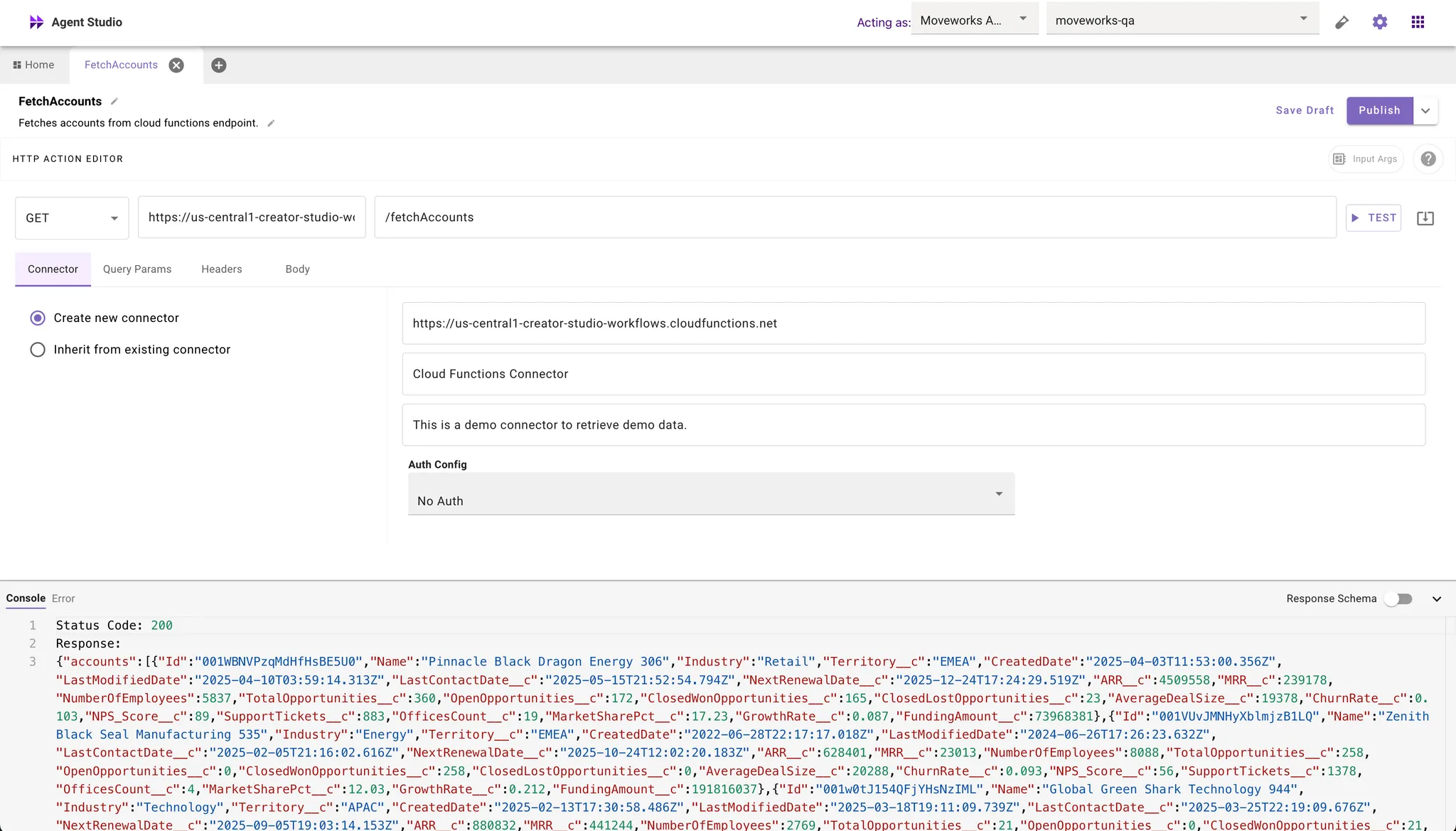
-
Save your HTTP action
Attach a Conversational Process
Now let's connect the HTTP action to your plugin & prepare it for analysis
- In the Plugin Editor, add a Conversational Process & create a new one.
- In the Conversational Process Editor add an action-based activity.
- Choose the HTTP Action you just built.
- In the activity configuration, under Output Mapper, we will rename the fields to make them more friendly for SDA.
SDA Tip!
It's important to name fields succinctly & clearly to maximize the performance of SDA against various queries.
MAP(): items: response.accounts converter: AccountID: item.Id AccountName: item.Name AnnualRecurringRevenue: item.ARR__c AverageDealSize: item.AverageDealSize__c ChurnRate: item.ChurnRate__c ClosedLostOpportunities: item.ClosedLostOpportunities__c ClosedWonOpportunities: item.ClosedWonOpportunities__c DateCreated: item.CreatedDate DateLastModified: item.LastModifiedDate Employees: item.NumberOfEmployees FundingAmount: item.FundingAmount__c GrowthRate: item.GrowthRate__c Industry: item.Industry LastContactDate: item.LastContactDate__c MarketShare: item.MarketSharePct__c MonthlyRecurringRevenue: item.MRR__c NetPromoterScore: item.NPS_Score__c NextRenewalDate: item.NextRenewalDate__c OfficeCount: item.OfficesCount__c OpenOpportunities: item.OpenOpportunities__c SupportTickets: item.SupportTickets__c Territory: item.Territory__c TotalOpportunities: item.TotalOpportunities__c
Launch it
Under Audience Settings you can launch it to yourself for testing.
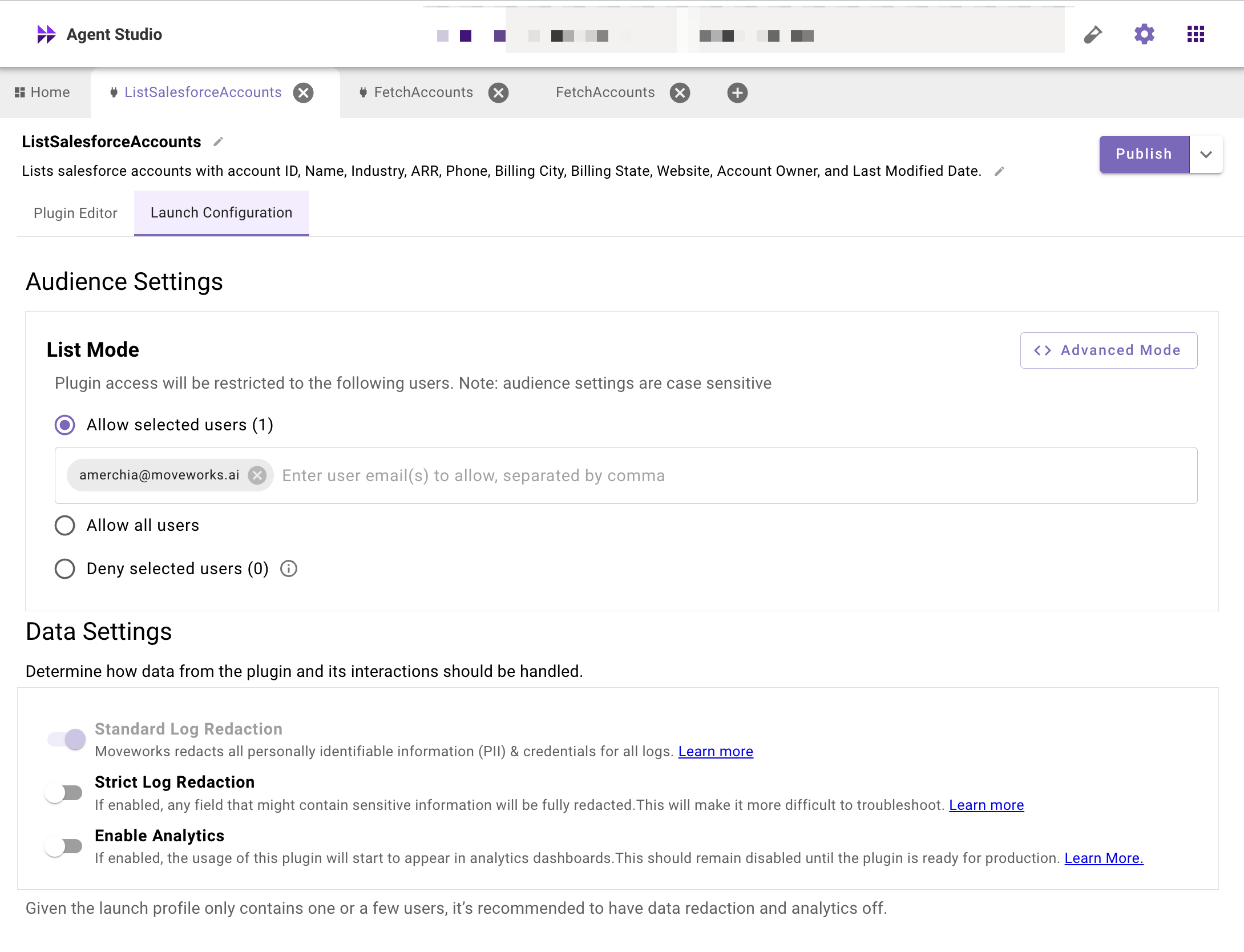
Test it!
Try it out! You should see something like the following.

Not seeing the right results?Verify that SDA is running by checking for the Running analysis progress update
Here are some other questions you could try:
- What's the total ARR of customers in the Tech industry?
- Which industry is performing best in Europe?
- Which accounts have the most support tickets are are up for renewal soon?
Next Steps
Start building your own plugins for Structured Data Analysis!
Updated 6 months ago
